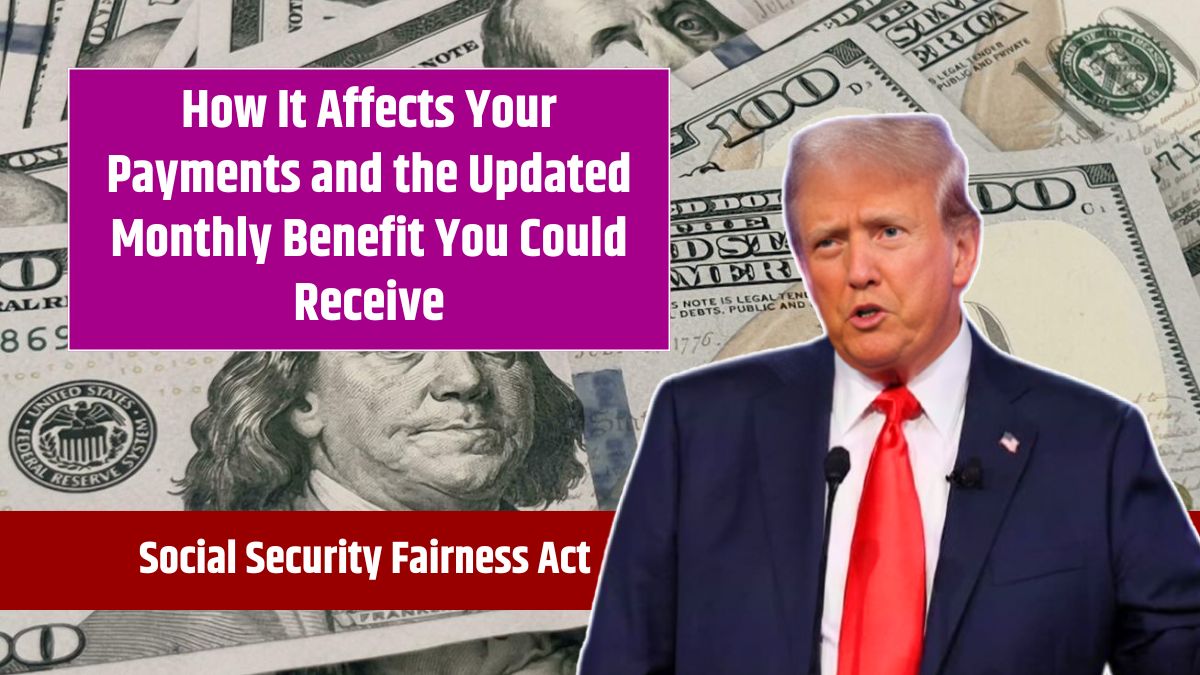The Social Security Fairness Act (SSFA), signed into law on January 5 by President Joe Biden, aims to bring significant changes to how Social Security benefits are calculated for individuals who also receive income from public pensions. This law is expected to positively impact nearly three million public sector workers, including teachers, firefighters, police officers, and others who rely on pensions for their retirement income.
What Is the Social Security Fairness Act?
The Social Security Fairness Act fully repeals two provisions that have long affected public sector workers: the Windfall Elimination Provision (WEP) and the Government Pension Offset (GPO). These rules have been in place since 1983 and have been seen as unfair to individuals who receive pensions from jobs that did not pay into the Social Security system.
Devin Carroll, a Certified Financial Planner (CFP) and owner of Carroll Advisory Group, explained that the WEP reduces Social Security benefits for individuals who have worked in jobs where they didn’t pay into Social Security, like some public sector jobs. The GPO, on the other hand, reduces spousal or survivor benefits for those who receive a pension from a non-Social Security-covered job.
How Do These Provisions Impact Public Sector Workers?
Under the previous system, workers who earned a pension from jobs that did not contribute to Social Security, such as teaching or firefighting, saw their Social Security benefits reduced. For example, a teacher who had a pension from teaching (which isn’t subject to Social Security taxes) and also worked a second job that qualified for Social Security benefits would receive lower Social Security payments due to the WEP.
Similarly, the GPO impacted Social Security benefits for spouses or survivors of workers who had pensions from non-Social Security-covered jobs. This meant that someone who was entitled to Social Security benefits based on their spouse’s earnings would see a reduction in their benefits if their spouse received a pension from a non-Social Security-covered job.
Changes Brought by the SSFA
With the signing of the SSFA, both the WEP and the GPO have been repealed, which means that public sector workers who qualify for Social Security will now receive the full benefits they are entitled to without having their benefits reduced. As a result, teachers, firefighters, police officers, and other public sector employees who receive pensions will see an increase in their Social Security benefits.
According to financial advisor Devin Carroll, the elimination of these provisions means that Social Security benefits for these individuals will now be calculated using the same formula applied to everyone else, regardless of whether their job was covered by Social Security. This is a significant change that ensures fairer benefits for public sector workers.
Why Is This Law Important?
The SSFA addresses an ongoing issue that has been a source of frustration for many public sector employees. The WEP and GPO were seen as penalizing workers who spent their careers in public service, making it harder for them to receive the full Social Security benefits they had earned. By eliminating these provisions, the SSFA aims to correct this imbalance and provide a more equitable system for all workers.
In the past, there were proposals to modify the WEP, but none of them passed. Some proposals suggested replacing the WEP with a new calculation formula, but the SSFA takes a more straightforward approach by fully repealing the provision. Unlike previous proposals, which did not address the GPO, the SSFA removes both provisions entirely.
Retroactive Payments and Future Impact
One of the key aspects of the SSFA is that it will provide retroactive payments starting from January 2025. This means that public sector workers who have been affected by the WEP and GPO will receive the difference in their benefits for the past years. However, it is not yet clear whether these retroactive payments will be issued as a lump sum or spread out over time. Financial advisors and experts recommend that individuals affected by the law stay in touch with the Social Security Administration to understand how these changes will specifically impact their benefits.
Will the SSFA Affect You?
If you are a public sector worker who receives a pension, it’s important to check if the SSFA will affect your Social Security benefits. The International Association of Fire Fighters (IAFF) recommends reviewing your employment history to see if you worked in a public sector job and whether you receive a pension from that job. You can also contact the Social Security Administration to get more information about how the SSFA may impact your benefits.
Additionally, it’s a good idea to speak with a financial advisor to understand how the new law will affect your monthly Social Security payments. With the elimination of the WEP and GPO, many public sector workers will see an increase in their Social Security benefits, which could help improve their retirement security.
Conclusion
The Social Security Fairness Act is a welcome change for public sector workers who have long felt the negative effects of the WEP and GPO. With the repeal of these provisions, teachers, firefighters, police officers, and other public employees can look forward to receiving the full Social Security benefits they deserve. While the law will not take effect until 2025, retroactive payments will be issued, and the overall impact on public sector workers will be significant. As always, it’s important to stay informed and consult with financial advisors to make sure you understand how the changes will affect your retirement plans.
Disclaimer – Our team has carefully fact-checked this article to make sure it’s accurate and free from any misinformation. We’re dedicated to keeping our content honest and reliable for our readers.







